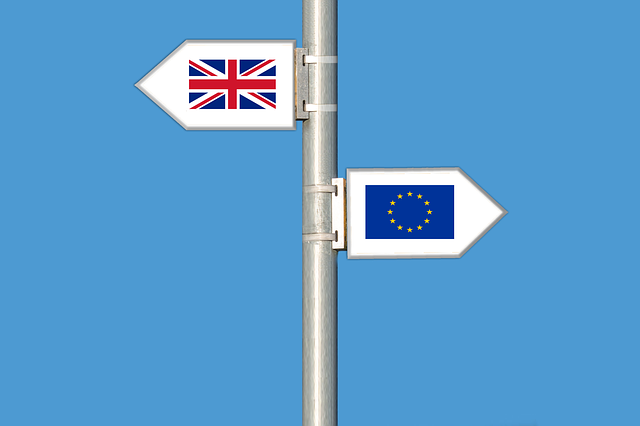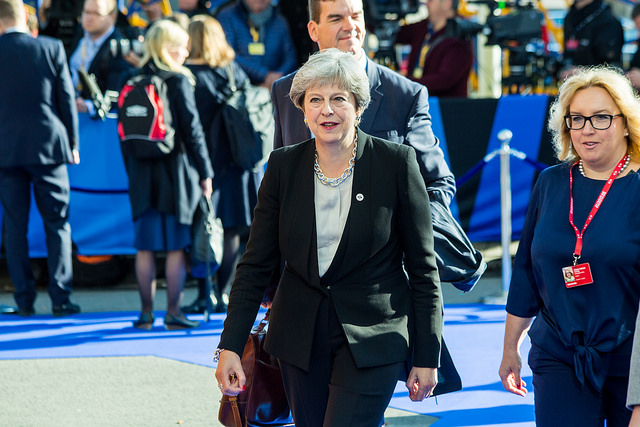Laborious Brexit discussions seemed to take an upturn when Home Secretary Sajid Javid recently confirmed the government would stand behind the Costa Amendment, a key document seeking to secure workers’ rights within the Brexit Withdrawal Agreement.
The Costa Amendment calls on Prime Minister Theresa May to ensure workers’ rights “whatever the outcome of negotiations on other aspects of the withdrawal agreement” and was tabled by Conservative MP Alberto Costa.
The amendment managed to secure support from over 130 MPs, including Jacob Rees-Mogg, Jeremy Corbyn and most crucially, Home Secretary Sajid Javid, who put the government’s support behind the legislation.
“I’m perfectly happy with that amendment. What Mr Costa is doing with this amendment is trying to find more ways for parliament to give that reassurance,” Javid had told the Home Affairs Select Committee.
But Prime Minister Theresa May had rejected the proposal, insisting EU powers would throw out the amendment if it were tabled – Javid hadn’t been made aware of May’s comments.
What Happens Now?

Costa’s amendment seeks to secure workers’ rights regardless of alternative Brexit outcomes. Image credit: Maxpixel
After a period where the entrenching of workers’ rights seemed to be looking incredibly likely, Alberto Costa, the MP who tabled the amendment, promptly resigned. Further details are unclear, although sources close to the politician told The Guardian Costa felt he had no choice.
“It seems ridiculous for the government to be sacking a parliamentary private secretary over an amendment that has crossparty support and the support of upwards of 60 Tory backbenchers and Sajid Javid,” the source said.
Costa has a history of lobbying the Prime Minister over citizens’ rights and had posted on Twitter:
4/4 I very much hope, and look forward, to be taking my amendment forward today with support from MPs across the House, to give the Gov’t a mandate to seek reciprocal citizens rights in order to bring EU & UK citizens the protections they both need and deserve. #CostaAmendment
— Alberto Costa MP (@AlbertoCostaMP) February 27, 2019
What Are The Nuts And Bolts?
Costa’s amendment has a simple premise. It intends to secure the workers’ rights of everyone involved in the Brexit process. Those included are mainland Europeans working in Britain, and British people working on mainland Europe.
The agreement sought to entrench the workers’ rights of all – no matter what may happen regarding the rest of the Brexit decision-making process.
How Might Brexit Affect Workers’ Rights?

Workers’ rights largely stem from EU law. Image credit: Pixabay
Current workers’ rights and protections stem from EU law, so if and when Brexit is carried through, our rights may be subject to change through parliament.
Some of the workers’ rights entrenched within EU law are detailed below:
- Limits on how much time employees can be required to work each week
- Maternity and paternity leave
- Health and safety
- Protections from discrimination and harassment at work
- Protections for workers when companies transfer their business (for example in a merger) or service provisions
- Protections for agency workers, part-time, fixed-term and young workers
- Government paying parts of redundancy, holiday or other party when employers become insolvent
Prime Minister Theresa May’s Withdrawal Agreement was rejected and an amendment version has yet to reach parliament, although it is likely to be similar to the first Agreement in promising to uphold EU standards while the divorce procedure takes place.

Prime Minister Theresa May has made no promises about workers’ rights yet beyond Brexit. Image credit: Flickr
No clarification has yet been made about workers’ rights post-Brexit, although there are vague descriptions that the UK shall “protect and promote social dialogue on labour matters”.
The Agreement also reaffirms the UK’s commitment to implementing the International Labour Organization Conventions that it has ratified. ILO Conventions are broad statements of principle and give far less protection to workers than EU Law.
In the event of a no-deal, May has also promised to protect the workers’ rights of all British citizens and EU nationals living within the UK.
“There are over three million EU citizens living in the UK who will be understandably worried about what the outcome of yesterday’s summit means for their future,” she said at a Downing Street press conference.
“I want to be clear with you, that even in the event of a no deal, your rights will be protected. You are our friends, our neighbours, our colleagues. We want you to stay.”
Despite her words, the rights of all British and EU nationals hang in the balance as talks continue over the proposed tabling of the revised Withdrawal Agreement.







